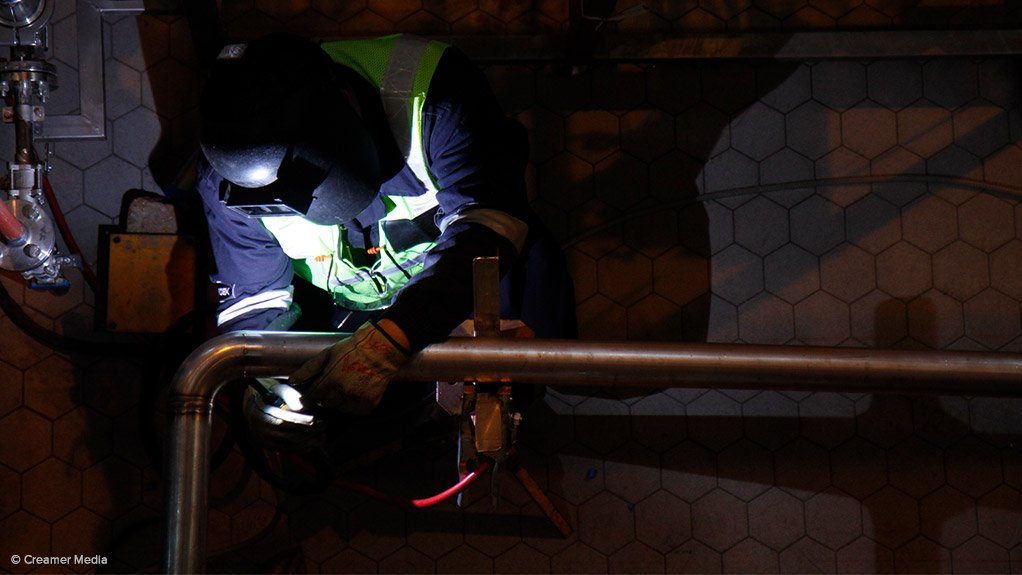The Steel and Engineering Industries Federation of Southern Africa (Seifsa) has described suggestions that it is only representing the interests of large employers in the metals and engineering sector as malicious “propaganda”, arguing that it “fights hard” to represent both small and big companies.
Seifsa was responding to a statement, titled ‘Exposing Seifsa’, in which the National Employers’ Association of South Africa (Neasa) accused the federation of having caused “untold hardship – in terms of business closures and job losses”.
Neasa said it was particularly concerned by media reports suggesting that Seifsa was currently engaging in bilateral discussions with the National Union of Metalworkers of South Africa (Numsa) following a deadlock in wage talks. “Once again, history is repeating itself. When the weak and devious Seifsa talks to Numsa, the industry is in grave danger.”
Talks officially deadlocked on June 15, following two rounds of negotiations. The unions rejected industry’s 5.4% wage offer against demands of between 10% and 12% and have applied for a certificate to launch strike action.
Seifsa CEO Kaizer Nyatsumba said that, until last week, Seifsa had worked closely with other employer organisations, including Neasa, in line with a mandate received from its member associations. However, he confirmed that it would will now engage directly with the unions in an effort to avoid “devastating” industrial action.
“We have absolutely no intention of concluding a deal that would worsen the situation, nor do we have a mandate to do so. Instead, in these bilateral engagements we will seek to conclude a realistic settlement acceptable to our members.”
Nyatsumba said he was, nevertheless, bitterly disappointed that, following the deadlock, Neasa CEO Gerhard Papenfus had decided to “viciously” lash out at Seifsa.
Nyatsumba said Papenfus’s portrayal of Seifsa as an organisation that represented only big employers was incorrect. “Nothing could be further from the truth. We represent both small and big employers. In fact, the overwhelming majority of our member companies employ no more than 50 people. Therefore, in our approach to negotiations with labour, we always strive to reach a deal that is acceptable to all our members, both small and big.”
He also took exception to the characterisation of Metals and Engineering Industries Bargaining Council (MEIBC) settlements as having been agreements between only Seifsa and Numsa.
“Seifsa, which represents 25 independent employer associations, has always negotiated and concluded agreements with all the trade unions in this sector, including Solidarity. Although there are currently five unions within the MEIBC, all six trade unions were signatories to the 2014 settlement agreement.”
Nyatsumba concurred that the industry was in a perilous state, but said that, unlike Neasa, it did not believe solutions could be imposed on stakeholders, including labour. “Instead, we believe in working closely with government and labour, as partners, in search of solutions, instead of standing on rooftops and shouting insults at everybody.”
Meanwhile, the South African Engineers and Founders Association (Saefa), which represents 400 firms, argues that strike action in the engineering sector is not inevitable, despite the application for a certificate to launch industrial action.
Executive director Gordon Angus reports that Saefa has appointed Jonathan Goldberg as an independent lead negotiator to represent employers in the current wage negotiations.
“The reality is that strike action will be extremely detrimental to employees and the sector as a whole,” Angus said in a statement, describing Goldberg’s appointment as an indication of the association’s sincere desire to reach a solution that will prevent strike action.
He appealed to labour representatives to show a similar desire to reach a sustainable solution, describing Numsa’s outright rejection of a proposal of reduced entry-level wages as demonstrating a predisposition towards industrial action rather than acting in the best interests of all participants.
“I am confident that, if the parties are willing to come to the table with an open mind, and a willingness to consider all viewpoints and concerns, a solution can be found that avoids the potentially devastating consequences of industrial action,” Angus concludes.
EMAIL THIS ARTICLE SAVE THIS ARTICLE ARTICLE ENQUIRY
To subscribe email subscriptions@creamermedia.co.za or click here
To advertise email advertising@creamermedia.co.za or click here











